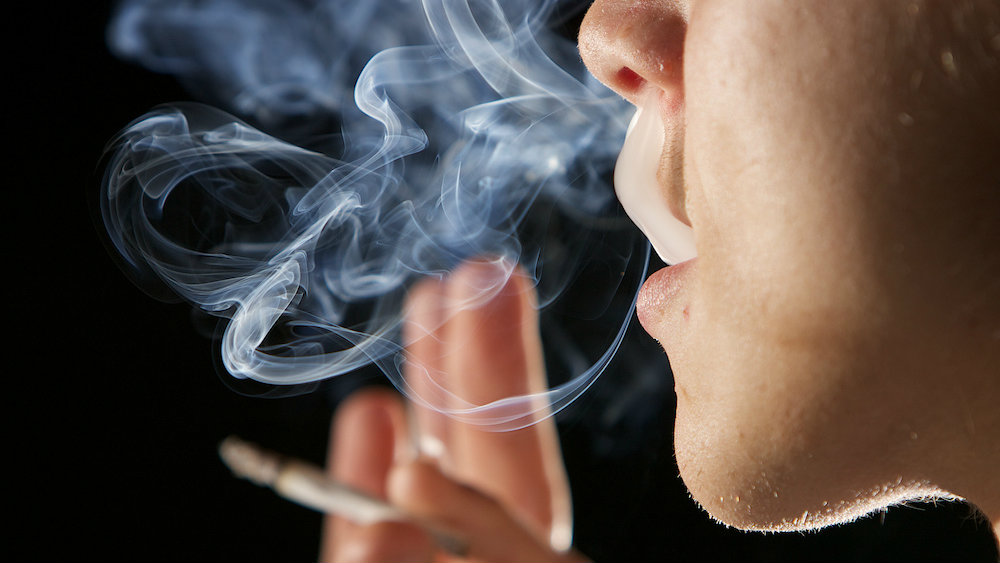Kevin Smith (yes, Silent Bob) had the type of revelation most men have in their mid-40s: His weight had spiraled out of control and he desperately needed to get a grip on his health.
It took a few years, but The Clerks director dropped 85 pounds by cutting sugar from his diet, he told US Weekly. He took to Instagram to narrate his weight-loss journey, noting milestones and giving fans a glimpse at his daily struggles and progress.
The weight loss was wise, seeing his genetic predisposition. His mother has two stents in her heart and his father was diabetic and died from a massive heart attack at 67, he told US Weekly. Still, he was surprised to find himself in a similar, life-threatening scenario a couple months ago.
Smith was shooting two shows for his Showtime stand-up special “Silent but Deadly” when he started feeling unwell, he said on The Late Show With Stephen Colbert. He chased everyone out of his dressing room.
“When I’m sick, I just want to go off in the woods like an animal and die,” Smith joked to Colbert.He was nauseous and sweating profusely, so he lied on the floor. His team canceled his show and called an ambulance once he vomited and had trouble breathing. You can check out Smith’s full recount of the incident below.
The fascinating part about Smith’s story is not that he wasn’t aware of the signs and symptoms of a heart attack (more on this in a bit). It’s that he was remarkably calm during the whole ordeal—something his paramedics and doctor believe were instrumental in his recovery.
“The paramedic, he goes, ‘You’re being real calm—that’s going to get you through this,’” Smith recalls. “And there was a dude behind him who goes, ‘That’s what’s going to save his life.’”
Smith asked his doctor—who indicated his LAD artery was entirely blocked and they needed to do emergency surgery—if all the pot he smoked was the reason for the heart attack.
“I honestly thought I was too high,” Smith says. His doctor replied, “‘No, in fact, quite the opposite, that weed saved your life. You kept calm…that joint saved your life.’”
Intrigued by the conjecture? So were we.
“There’s absolutely no data to support that having smoked marijuana before an event like this [could be beneficial],” says Minnesota-based cardiologist Russell Luepker, M.D., M.S. “Of course, there are benefits to remaining calm when you’re in a crisis, but it may not affect your heart one way or the other.”
Keeping your cool is crucial for a couple different reasons.
“When you’re afflicted by acute pain, you can get extremely anxious and do strange things like get in your car and drive to the hospital,” Luepker says. People who do this while suffering a heart attack can obviously die on the road and even kill others. “Being calm and taking measured steps to get help is certainly a positive, but I’m not sure smoking marijuana is the way to get to that.”
What’s more, smoking and inhaling any burning substance—not just tobacco—produces carbon monoxide in your body, which decreases your blood’s ability to carry oxygen. It also takes a while for your body to clear carbon monoxide, because it binds so strongly to hemoglobin (which carries oxygen), so smoking can aggravate an attack, rather than protecting you.
Bottom line: Don’t reach for marijuana if you have chest pain. Take an Aspirin, Luepker recommends. And if you’re at a high risk for heart attacks (i.e. you have a family history of poor heart health), get regular checkups and see a specialist to lower your risk.
And if you are experiencing any chest pain, assess the situation. If the symptoms don’t get better after 15 minutes, seek medical help.
“The first couple hours are the most serious,” Luepker says. “If you don’t get it taken care of quickly, your chances of having a bigger heart attack and/or dying increases, so keep a calm head and don’t ignore the symptoms. Some people have classic chest pain—two-thirds or more experience this—but nausea and sweating, even vomiting, can be underlying symptoms of a heart attack people don’t recognize as easily.”
Credit: mensjournal.com









